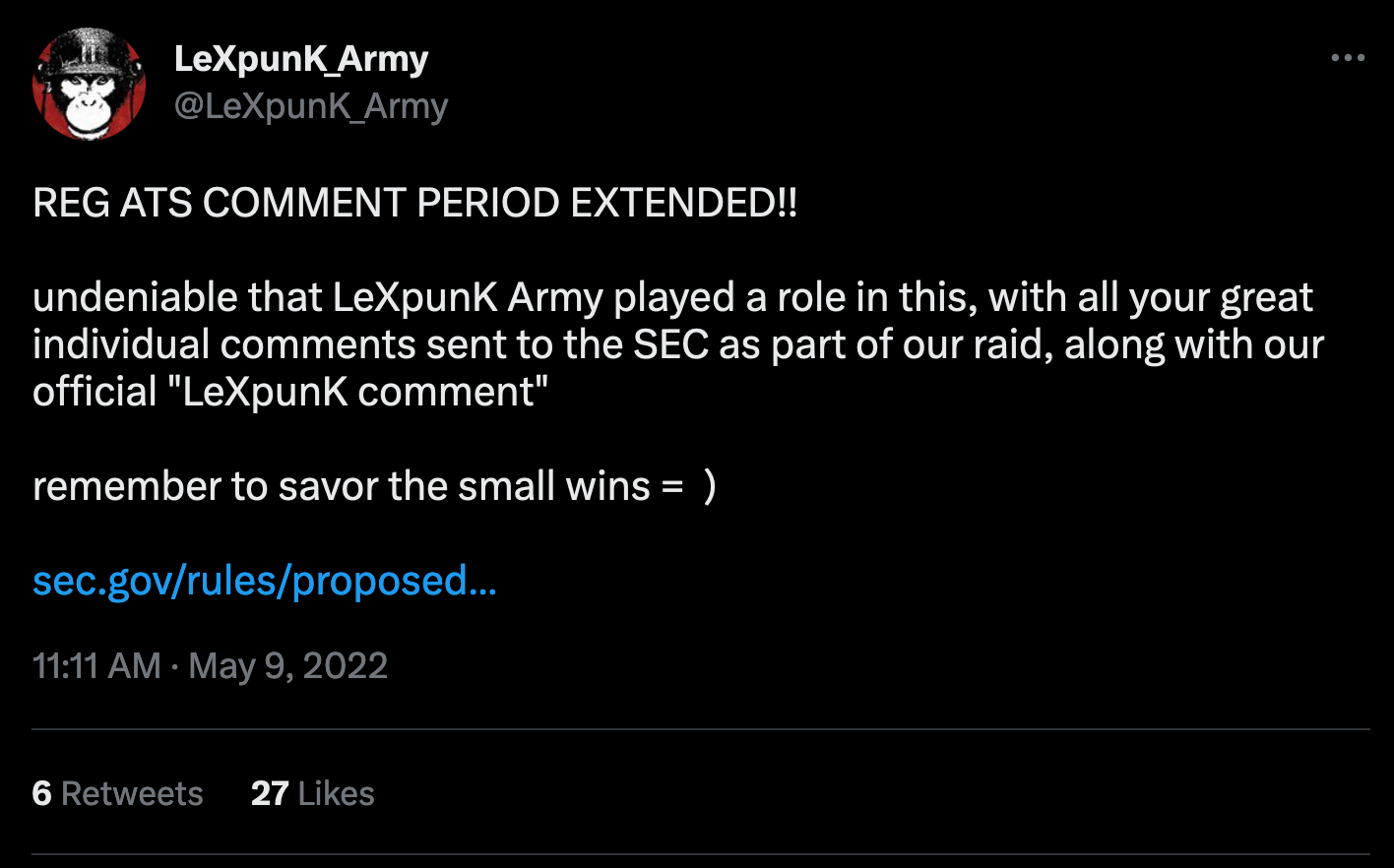A few days ago the SEC announced it was extending the comment period for three of its most controversial proposed rules—including the proposal to expand the definition of “exchange” to include “communications protocol systems,” which many believe would wrap defi protocols into the SEC’s regulatory ambit.
While many folks I respect took this as a good sign, or even a win…
…I’m not so sure.
While I hope the SEC extended the comment period to give the potentially affected class(es) a better opportunity to weigh in, it is just as likely that the Commission’s lawyers convinced leadership that a 30-day comment period would hurt them in the lawsuits that will inevitably come. In other words, this move diminishes an argument that the rules’ opponents could use in court.
This is OK. Good government sometimes comes from litigation pressure.
Importantly, the move didn’t eliminate the most potent good government argument against the exchange rule—the fact that the proposal doesn’t mention crypto at all, depriving the industry of the opportunity to comment (and the SEC of the opportunity to grapple with important crypto-specific questions).
As @xethalis and I say in our comment letter:
This comment focuses on what the proposal does not discuss: whether the SEC intends the phrase “communication protocol systems” to cover computer code deployed on a blockchain (or the people who deploy or maintain that code), which computer code may allow users to purchase, sell or otherwise transact in cryptographically-secured digital assets without an intermediary. Given its recent intensive focus on digital assets and their regulation, it would be surprising indeed if the SEC and its staff had not considered these questions in depth—and had not developed a view on their answers—before the Commission voted, but there is not a whisper of the SEC’s intentions on this topic in the proposal’s 650-plus pages.
Bottom line: the proposal fails to give clear and specific notice to a potentially regulated class, and, as a result, it fails to grapple with the legal and practical issues that would arise if the SEC intended to regulate that class. The SEC has been criticized for pursuing a strategy of “regulation by enforcement” over crypto. While that may be somewhat unfair, particularly given the difficulty of regulating a space as fast moving and varied as crypto, we should not add “regulation by surprise” to the complaints—especially when we are on the cusp of a national crypto strategy that should guide regulation in this area.
Takeaway is that the a comment period’s extension is not necessarily a win.
This post was originally published on Mirror at mirror.xyz/coldebella.eth.



